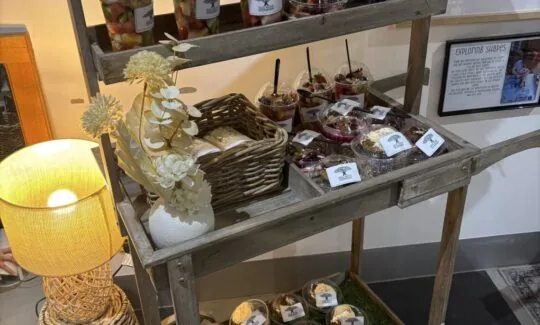Separation Anxiety in Children and Parents
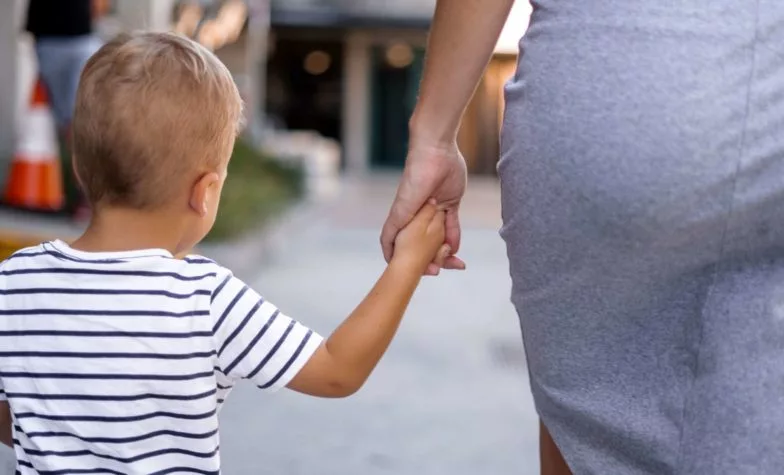
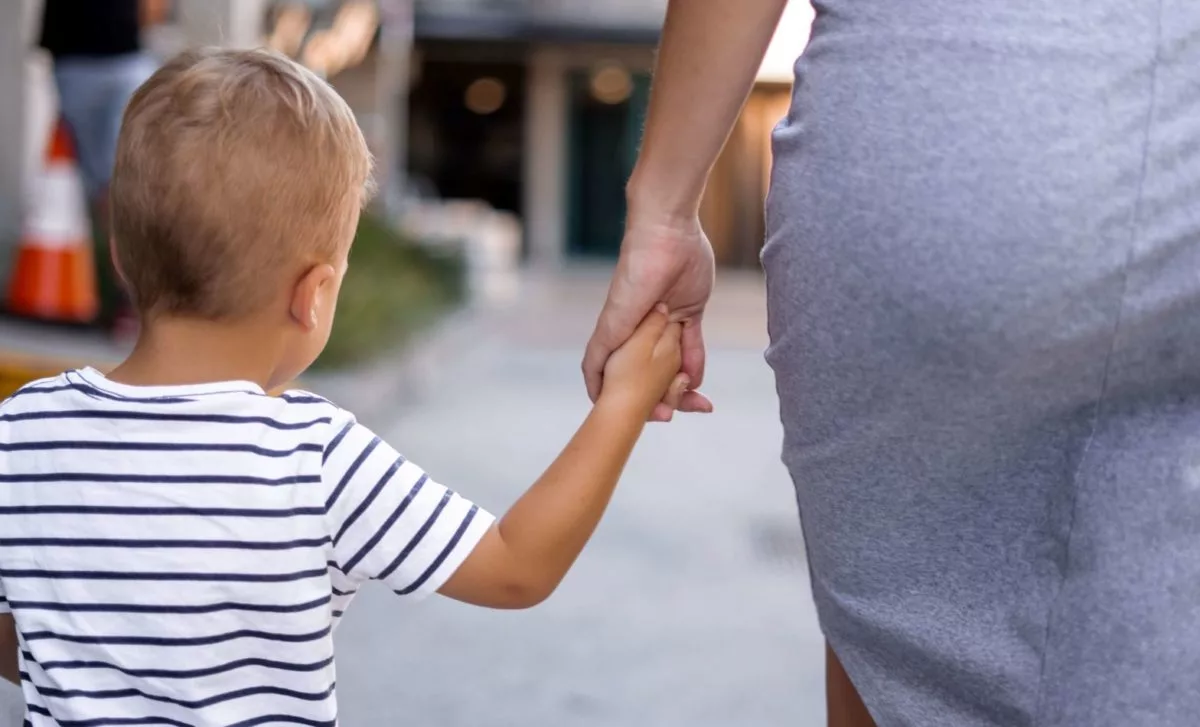
Both children and parents can have feelings of anxiety. It helps to recognise the signs of separation anxiety as there are some tools you can use to help manage this for both you and your child.
What is Separation Anxiety?
Psychologist Dr Kim Shortridge, from the Sydney Psychology Centre, works closely with our Only About Children Health Team. According to Dr Kim Shortridge, to understand what separation anxiety means, it is helpful to understand the definition of anxiety, and what it looks like. Anxiety is when worries or fears get in the way of daily life and cause distress. Anxiety consists of thoughts, feelings and behaviours.
Recognising Separation Anxiety
Separation anxiety can be a normal developmental step for children and for parents. It is natural for children to have questions or to be experiencing some anxiety, especially during times of great change or uncertainty. Your child may show certain behaviours that show you they are having strong separation feelings. Children may respond to stress in different ways such as being more clingy, anxious, withdrawing, angry or agitated, bedwetting etc.
You might notice yourself feeling heightened emotions during this time. Children will inevitably pick up on the concerns and anxiety of others so, if you’re feeling anxious, chances are your child may also seem anxious.
Signs of separation anxiety 0-6 months
In children aged 0 – 6 months separation anxiety is uncommon. They have not yet developed the brain hardware for this anxiety or formed a strong attachment to individuals.
Signs of separation anxiety 6-18 months
At this age it is typical for a child to show distress when separated from a parent. This is because their attachment systems are now developing. Attachment essentially means that a child’s parent has responded to their needs appropriately, enough of the time, to help that child to feel safe and protected. Their brain has hardwired to know that this person is their safe person. When that safe person leaves, the world can feel scary for a child.
Signs of separation anxiety 3 years
By the time a child is about 3 years old, it is typical for them to be able to separate comfortably from a parent. They often have the knowledge that they will be ok without them and that the parent will return. You might hear a few whimpers and requests for their parent to stay every now and then. Perhaps this happens when they feel sick or tired. However, this should be infrequent and typically not too distressing for the parent or child.
Of course, times of uncertainty can often mean that ‘typically’ is not always the experience.
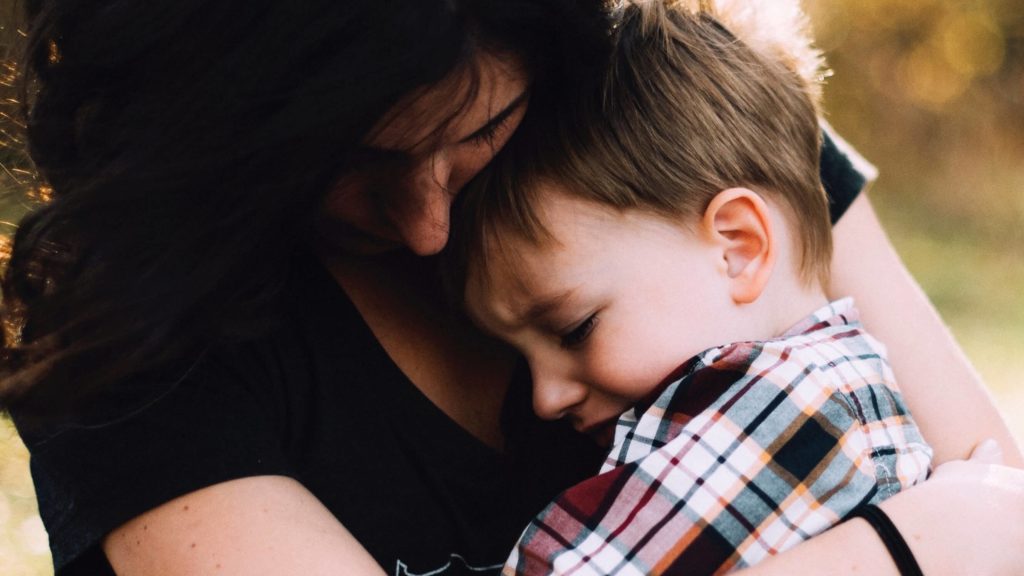
How to manage Separation Anxiety
Talk about it
For children – not having information is scary, and many children will fill in the blanks with their own imagination. Remain calm and positive in your discussions about what is happening at childcare today. Emphasise to your children that they and your family are safe.
For parents and caregivers – it helps to have a trusted person to discuss these feelings with. A good starting point is your Only About Children Educator. They know the childcare environment and can often give clear responses to any questions that you may have surrounding your child’s care. Talking about these feelings with a supportive partner, family member or friend can also be helpful.
Spend time in the new environment together if possible
For children – this allows them to have a familiar face close by to encourage them while they explore the new space and meet new people.
For parents and caregivers – time in the new environment will let you see the space and understand where your child is spending their day.
Create a drop-off and pickup routine
You may like to try the following if your child is experiencing separation anxiety or distress when you drop them off:
-
Try to say goodbye the same way each time – consistency is key. Make your goodbye a message of love with a future-focus. Such as, “I love you, have a great day, see you when I pick you up this afternoon”
-
Say goodbye to your child in a special and loving way. Perhaps you can blow them a kiss to keep in their pocket for the day
-
Encourage bravery with warmth. Briefly validate their emotions by saying, “I know, it’s hard saying bye”. Then continue to say your goodbye to them in a warm and loving tone
-
Act bravely yourself so your child does not see your own distress
-
Reunite with your child in the same, warm way, every time. Again, the key is consistency
- “A good goodbye is a quick goodbye!” To make goodbyes easier on you and your child, try to remember the mantra “a good goodbye is a quick goodbye”. Staying too long to help ease your child into their day will only extend their distress. The goodbye is coming whether they like it or not.
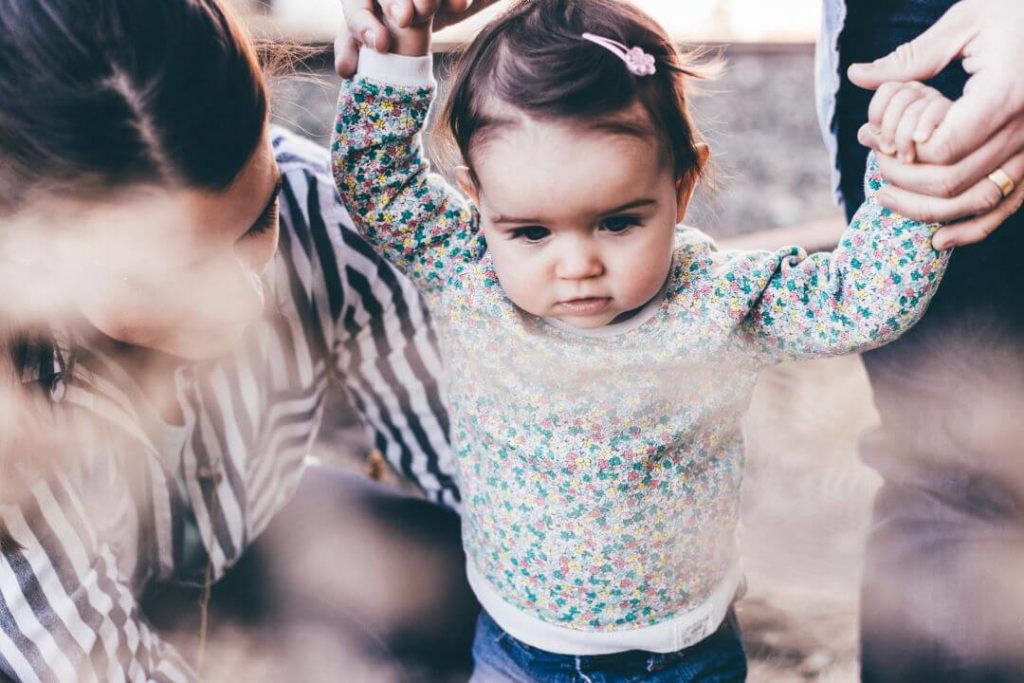
Some more tips:
- When your child is first starting childcare, or first going back after some time away, try shorter stays and build up to a full day over time. This can be done initially through orientation days when you attend together.
- Try not to be too worried (we know, easier said than done) – children will usually become familiar with their new surroundings and new people over a few weeks. Some children just take a little longer to adjust than others.
- Talk to your Campus Director or Educator about any questions or concerns you may have. They will usually be able to set your mind at ease about how things work around the campus and how your child is settling throughout the day.
Only About Children and Transition to Childcare
At Only About Children we understand that this time can be a big moment of change for everyone in the family. For this reason, we work closely with families and children as they transition to childcare through:
- Orientation days. This is your child’s first experience at the campus and it’s a great opportunity to familiarise your whole family with life at Only About Children. Each session is about 30-60 minutes and we recommend coming in several times if possible. After all, the more time your child spends at our childcare centre with you there for reassurance, the more confident they’ll feel when they commence care.
- Following your home routine. We understand that a child’s routine helps them feel at home and secure.
- Check in calls with Educators after drop off and throughout the day as requested by families.
- Daily updates and photos via our app.
For more information, please don’t hesitate to speak with your Educator and read our information for enrolled families.
Only About Children can help your child to grow, make friends and explore the world.
Only About Children can help your child to grow, make friends and explore the world.
Related Reads
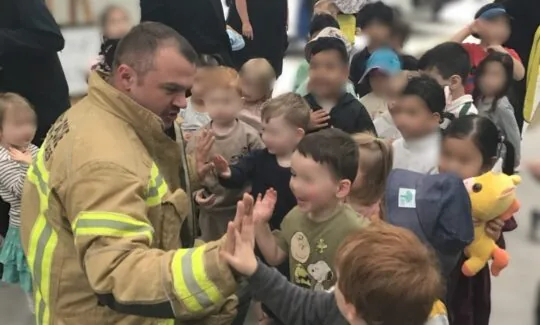
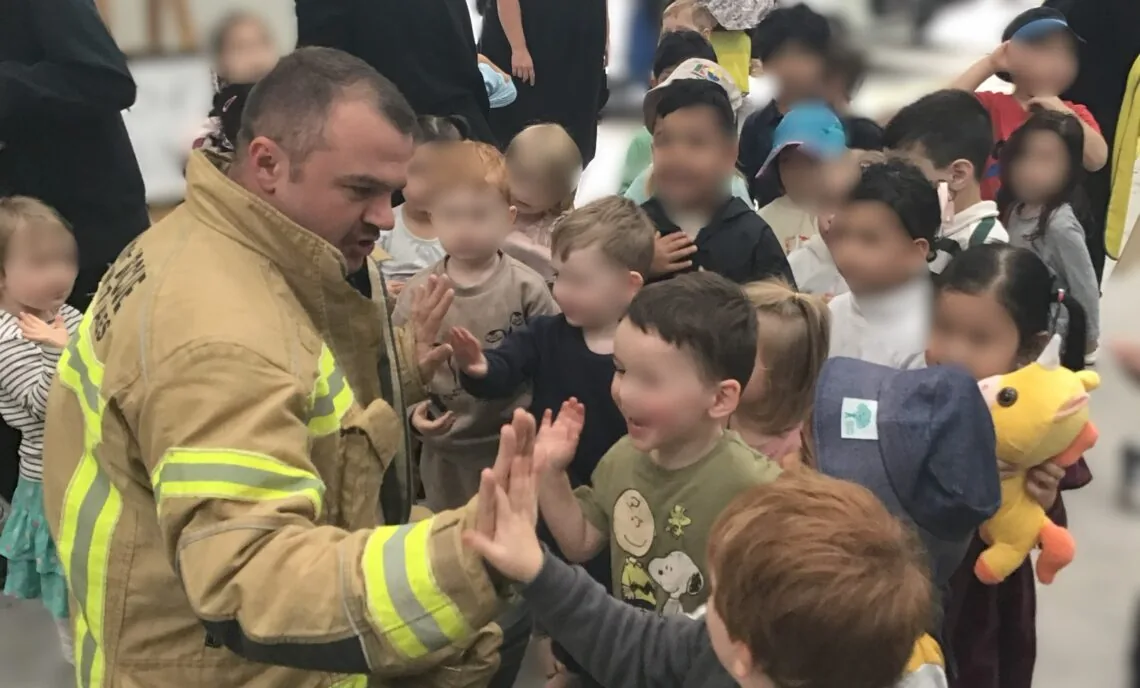
OAC Asquith engages with our community emergency services
Stop, drop and roll, stranger danger, healthy bodies, and sirens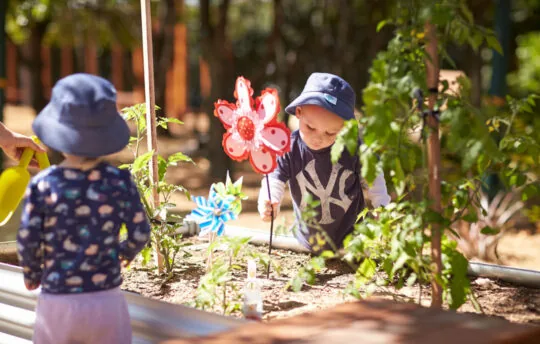

Choosing The Right Preschool/Kindergarten For Your Child
Choosing the right Preschool/Kindergarten for you child can be a daunting task. When exploring the ideal preschool choices for your child, there is no need to navigate blindly. Simply by asking the right questions, you can find the perfect match.